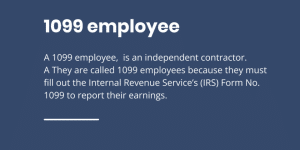Updated November 16, 2025
Understanding California Labor Code 132a
California Labor Code 132a serves as a critical legal safeguard for employees who have suffered workplace injuries or have filed claims for workers’ compensation. This statute explicitly prohibits employers from retaliating against employees for exercising their rights under the workers’ compensation system. Understanding the nuances of this law is essential for both employees and employers to navigate the complexities of workplace rights and responsibilities.
Overview of Labor Code 132a
Labor Code 132a is designed to protect employees from discrimination and retaliation related to their workers’ compensation claims. The law states that it is unlawful for any employer to discharge, threaten to discharge, or discriminate against an employee who has filed or expressed an intention to file a claim for compensation. This protection extends to employees who testify in workers’ compensation proceedings or assist others in their claims.
Key Provisions
- Protection Against Retaliation: Employees are shielded from adverse actions taken by employers due to their involvement in the workers’ compensation process.
- Scope of Discrimination: Discrimination can manifest in various forms, including termination, demotion, reduced hours, or any other unfavorable treatment linked to the employee’s claim.
- Legal Consequences for Employers: Employers found guilty of violating this law may face misdemeanor charges and significant financial penalties.
Elements of a 132a Claim
To successfully establish a claim under Labor Code 132a, an employee must demonstrate specific elements:
- Filing a Claim: The employee must have filed a workers’ compensation claim or indicated an intention to do so before any discriminatory action occurred.
- Adverse Action: The employer must have taken retaliatory action against the employee, such as termination or threats of termination, directly related to the claim.
- Singling Out: The employee must show that they were treated differently from other employees due to their injury or claim.
Proving Discrimination
Proving discrimination under Labor Code 132a can be challenging. Employees must gather evidence that links the adverse action to their workers’ compensation claim. This may include documentation of the timing of events, witness statements, and any relevant communications with the employer.
Types of Retaliation
Retaliation can take many forms, and it is essential for employees to recognize what constitutes unlawful behavior under Labor Code 132a. Common examples include:
- Termination: Being fired shortly after filing a claim.
- Reduced Hours: Having work hours cut without a valid reason.
- Demotion: Being moved to a less favorable position or role.
- Harassment: Experiencing intimidation or bullying from supervisors or colleagues.
Subtle Forms of Retaliation
Not all retaliation is overt. Sometimes, it can be more subtle, such as being passed over for promotions, receiving negative performance reviews, or being assigned undesirable tasks. Employees should be vigilant and document any changes in their treatment that coincide with their workers’ compensation claims.
Legal Remedies Available
If an employee successfully proves a violation of Labor Code 132a, they may be entitled to various remedies, including:
- Increased Compensation: Employees may receive a 50% increase in their compensation, capped at $10,000.
- Reinstatement: Employees may be reinstated to their previous position if they are able to perform the job.
- Reimbursement for Lost Wages: Employees can claim back pay for wages lost due to discriminatory actions.
- Attorney Fees: Employers may be required to cover the employee’s legal costs, up to $250.
Filing a Claim
To initiate a claim under Labor Code 132a, employees must file a petition with the Workers’ Compensation Appeals Board (WCAB). This petition must be submitted within one year of the discriminatory act or termination. It is crucial to act promptly, as missing this deadline can bar the claim.
Defending Against a 132a Claim
Employers facing a 132a claim must prepare a robust defense. They can argue that the adverse action taken was based on legitimate business reasons unrelated to the employee’s workers’ compensation claim. Common defenses include:
- Performance Issues: Demonstrating that the employee’s performance was unsatisfactory prior to the claim.
- Policy Violations: Showing that the employee violated company policies that warranted disciplinary action.
- Uniform Application of Policies: Proving that the employer applies policies consistently across all employees, regardless of their claim status.
Importance of Documentation
For employers, maintaining thorough documentation of employee performance and any disciplinary actions taken is vital. This documentation can serve as evidence to support their defense against claims of retaliation.
The Role of Workers’ Compensation Insurance
Employers must also be aware that most workers’ compensation insurance policies do not cover claims related to retaliation under Labor Code 132a. This means that if an employer is found liable for discrimination, they may have to pay damages out of pocket, as these claims are considered uninsurable.
Implications for Employers
This lack of coverage can have significant financial implications for employers. It underscores the importance of fostering a workplace culture that respects employee rights and adheres to legal obligations regarding workers’ compensation claims.
Conclusion
California Labor Code 132a plays a crucial role in protecting employees from retaliation related to their workers’ compensation claims. Understanding the provisions of this law is essential for both employees and employers. Employees should be aware of their rights and the remedies available to them, while employers must ensure compliance to avoid legal repercussions.
If you believe you have been subjected to retaliation for filing a workers’ compensation claim, it is advisable to seek legal counsel. An experienced attorney can help you navigate the complexities of Labor Code 132a and advocate for your rights in the workplace. Remember, you have the right to seek compensation and protection under the law, and taking action can lead to a more equitable work environment for all.
If you need employment litigation, call Setyan Law at (213)-618-3655. Free consultation.






